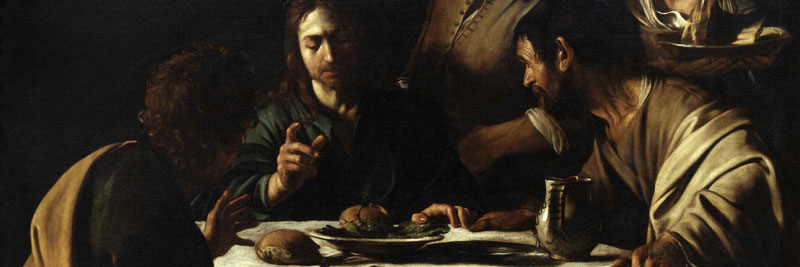Choices and Articles of Faith

The newest coronavirus seems uniquely designed to challenge a modern people. If it were more deadly and contagious, we could only react as it ripped through society like a conflagration. Because it is not deadly to most people, however, COVID-19 forces us to make decisions, and foremost among those decisions are what we believe and what we think is important.
The governor of Rhode Island, a “practicing” Roman Catholic, believes that beer, liquor, and wine are sufficiently important to our community that we should risk the interactions necessary for people to procure alcohol. She believes that the items in grocery stores, including flower bouquets, are necessities. Even abortion makes the list of “essential” services. But in Gina Raimondo’s view, an institution that blesses wine, bread, and palm branches is not sufficiently essential to provide spiritual sustenance, regardless of the risk that believers might be willing to bear or the precautionary measures that churches might put in place.
In December, Cardinal Sean O’Malley of the Roman Catholic Archdiocese of Boston declared 2020 a Year of the Eucharist, “to bolster the faith of those who already believe in the Real Presence of Jesus in the Eucharist and to encourage those who struggle with this belief.” In a promotional video, Cardinal O’Malley says, “the Eucharist gives us the inspiration and the strength to carry out the mission that we have to transform this world.” It is at the center of our identity as Catholics. It is a definitional quality of Catholicism that we believe in this direct physical interaction with God, and this awe-inspiring point of contact resonates throughout our daily lives. The need to remain eligible to receive the Eucharist helps us to resist sin in matters large and small.
Another definitional Catholic belief is in the institutional authority of a Church that traces its leadership back to the first apostles of Jesus, the Christ. In the twenty years or so since my conversion, the institutional Church has had a rough time of it. I converted when the sparks of scandal were beginning to catch flame, so by necessity I understand how an institution of human beings can go astray, even on a structural scale. I can see how an organization that has a unique relationship with God would attract both damaged souls hoping to be healed and evil forces intent on corrupting it, exploiting the inherent risk of trust and good will.
My faith has also remained strong as I’ve grappled with the elevation of a pope whose statements and public persona lead me to grave reservations. I trust that God has a plan, and I can reconcile my doubts by confessing them, in that way remaining in communion with the Church and, therefore, eligible for the apotheosis of the Roman Catholic faith: the Eucharist.
In the parade of days, ordinary and extraordinary, Catholics trust the institutional Church to balance the centrality of sacraments with the circumstances of lived life, allowing, for example, bishops to offer dispensation such that one species of the Eucharist (wine) is not offered during flu season, which could invite anxiety and judgment into a profound experience. Moreover, dispensations for parishioners not to receive the Eucharist at all when it truly cannot be done have obvious justification.
Still, in the face of obstacles, there remains an aspiration to provide this most profound of services and to overcome the barriers, through heroic means, if necessary. In hostile times and places, the inability of the Church to reach believers with sacraments does not damage claims about what those sacraments portend. Indeed, throughout history, Christians have taken great risks to breach obstacles, and many of them are now saints. The human institution — however weak in a given time or place — was striving, and so it was rich with God’s Spirit and with “the mission that we have to transform this world,” as Cardinal O’Malley put it.
But how much of an obstacle is COVID-19, truly? About that, we have to decide.
I believe in the unique and divine commission of the Roman Catholic Church, but I tremble to admit that the reaction of its leaders to COVID-19 does not seem to match the claims that they make about the Eucharist. If we believe something, we must be conspicuous in acting as if our beliefs are true.
A special dispensation to miss Mass in times of personal difficulty or communal catastrophe is one thing, but how can it be that a virus that has moderate-to-no observable effect on most people and against which basic hygiene and courtesy are known preventatives, how can it be that this virus is taken as such a threat that the Church stops trying? If it is good enough for us to watch a priest partake of the Eucharist on Facebook for months on end, then what’s the point?
We are living through an anxious time of extreme spiritual danger, during which modern people are having to decide what we believe. How can “spiritual communion” at a distance be acceptable during such a time of doubt and challenge if we believe what we claim about the Eucharist? The tabernacle is right there. A believer could walk up and spend hours praying just on the other side of the wall, outside, with no fear for his or her safety. The only reason the praying penitent cannot receive the blessing of its contents is that the door of the church is locked.
To be sure, these days, many of our priests are older and therefore at high risk of death if they catch the virus. And true, many parishioners are vulnerable, themselves. These are reasons that priests should not be compelled to conduct services and that dispensations should be available for anybody who feels too anxious to participate. These are reasons to stress the importance of precautions.
The Church needn’t force a reckless show of faith on its people. But should it be standing in the way of believers who want, who yearn for, the focal point of our religion, or should it be developing protocols and asserting its civic authority in order to open a path for those who believe that the need outweighs the risk in our individual circumstances? Should it be standing in the way of saints, or should it be making their heroism possible?
Across Rhode Island’s border, in Massachusetts, it is the Year of the Eucharist, and yet the Eucharist is unavailable. Cardinal O’Malley’s aspiration to bolster the faith of believers has been transformed into a crisis of faith for anybody who can’t understand why it is not worthy of emergency consultations and extraordinary efforts to fulfill the promise of the year (the promise of our Church), somehow.
Yes, the particular attributes of the newest coronavirus are forcing us to decide what we believe and what we think is important, and in the months and years to come, we will face the consequences for our governments’ decisions. We will also face consequences because others have taken notice of the decisions that we have made. There is great danger and an air of sulfur in this fact, as if the germ had been cunningly crafted to attack us where we are most vulnerable.
We must overcome that vulnerability — especially those of us blessed not to have lost access to our Lord’s physical presence.


